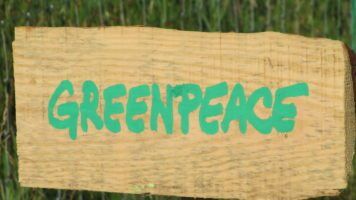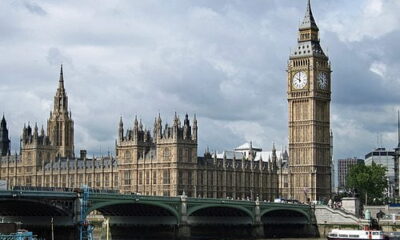

Environment
Greenpeace Claims Cancelling Illegal Conecessions Isn’t Enough
Following the release of the Greenpeace report outlining several breaches of the DRC (Democratic Republic of the Congo) moratorium, DRC’s Minister of Environment, Mr. Robert Bopolo Bogeza, announced that “all three titles will be cancelled,” but Greenpeace says more still needs to be done.
Greenpeace Africa welcomes the decision by DRC Minister of Environment, which was one of the recommendations outlined in the report. However, a mere cancellation of the logging contract on its own is not enough: any responsibility for the breaches that lies with the former or current Minister of Environment must be clearly identified, and sanctions must be taken.
Greenpeace demands a thorough and transparent investigation done by an independent investigation commission which will ensure accountability of all officials associated with, or involved in, concealing the violation. This is a crucial first step to address the impunity, nepotism and corruption in the forestry sector. To further ensure that all involved in this serious breach of the moratorium will be sanctioned, Greenpeace will bring this case to the Public Prosecutor for further investigation.
In February 2016, the Minister of Environment signed three mission orders for Ministry staff to supervise and facilitate the negotiation of social contracts in the concession areas. In a comment on the Greenpeace report, the Minister reportedly claimed that the public records of the Ministry of Environment show, “[…] no sign of these contracts granting three forest concessions to Somifor and Fodeco. The Treasury has not cashed anything in this illegal transaction”, adding that he had decided to cancel these contracts “for the holders not to be able to claim them later”. Yet, according to the concession contracts, a deposit of USD 50.000 was paid as a guarantee for each concession.
Greenpeace believes that this statement warrants a full investigation. The facts suggest that either the Minister signed the mission orders in the full knowledge that the concessions were illegally awarded, which would be a clear breach of the moratorium, or the Minister signed the mission orders without even the most basic check of the legality of the concessions, which suggests negligence and a serious lack of governmental control over the forest sector. Both possible explanations are of grave concern and call for serious ramifications.
Greenpeace also requests a response from the current Minister on the claims made by his predecessor, Mr.Bienvenu Liyota Ndjoli. Mr Liyota denied that the concessions were illegally awarded on the grounds that all three concessions were “reallocations, not new concessions”.
Yet the 1st article of the Ministerial Order of May 14th 2002 is very clear: it suspends the granting of new supply guarantees (“Garanties d’Approvisionnement”) or letter of intent (“Lettres d’Intention”) related to timber, as well as their renewal or extension. The titles in question were returned to the private domain of the State after the moratorium was put in place. The “reallocation” of such title is a case of renewal to a different concessionaire, and therefore a new forest concession contract, which is a clear breach of the moratorium. This safeguard to protect Congolese forests cannot be lifted unless a geographic programming of future allocations is made, based on a consultative process. This process has not yet started. The former Minister of Environment Liyota also claimed to have received a principal agreement from the Prime Minister to examine the concession demands.


 Environment12 months ago
Environment12 months agoAre Polymer Banknotes: an Eco-Friendly Trend or a Groundswell?

 Features11 months ago
Features11 months agoEco-Friendly Cryptocurrencies: Sustainable Investment Choices

 Features12 months ago
Features12 months agoEco-Friendly Crypto Traders Must Find the Right Exchange

 Energy11 months ago
Energy11 months agoThe Growing Role of Solar Panels in Ireland’s Energy Future





























